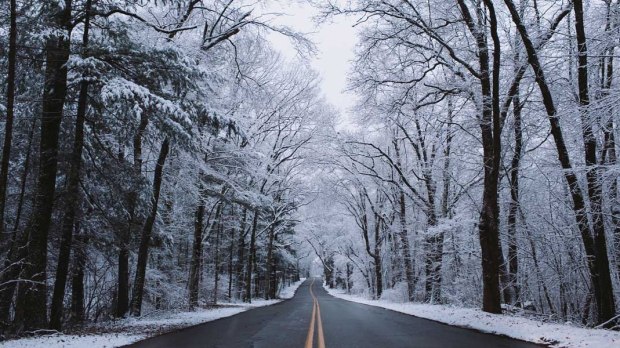Lenten Campaign 2025
This content is free of charge, as are all our articles.
Support us with a donation that is tax-deductible and enable us to continue to reach millions of readers.
Dust of Snow
The way a crow
Shook down on me
The dust of snow
From a hemlock tree
Has given my heart
A change of mood
And saved some part
Of a day I had rued.-Robert Frost
Frost gives us next to no details about what happened that day. What was he doing in the snow? Why was he in such a bad mood? They’re obvious questions, but Frost seems to say “Forget that stuff, that’s not important. Here’s what matters.”
The crow isn’t what lifted his mood. It wasn’t the hemlock tree, or the snow, either. He’s very specific; it was the way that the crow shook down the dust of snow that was the catalyst. And (thanks for nothing, Frost) he doesn’t even tell us how the crow did it! Whether the crow was startled, or alighting on a branch, or foraging for berries, it’s not important.
The hemlock matters, though. It’s one of those evergreens that grow to points, like a Christmas tree. It’s not the kind of tree that holds snow well, unless the snowfall has been heavy and wet. Then, all of its branches bow down with the weight, till you’re sure the snow will slide off any second from the sheer pitch.
The crow shook off a dust of snow which was already pretty precarious, then. If you were out walking, you’d probably be hearing little thumps and drips of snow dislodging from the branches anyway. That, you’d expect. The crow might be a surprise.
So the picture Frost has painted really gives us a wealth of information, with nothing extra to distract us from the point. There he is, walking along in a crummy mood about something, when he’s dusted with snow–and he looks up, and finds out he’s not alone.
“The way a crow
Shook down on me …”
What way did the crow shake down the snow? Like a living thing! Where you’d expect the snowfall to come from gravity, or melting ice, or wind in the tree, it turns out it’s far more personal. Something was up there. And it’s this living presence that saves some part of a day which was going to be eaten up by his mood.
Here, there’s a pronounced pause between stanzas. There’s no punctuation between them, but the dust of snow is still separated from its effect, the “change of mood,” as Frost stops to take it in. Why on earth would the presence of a crow in an otherwise empty scene make so much of a difference?
It makes a difference because it shatters his solitude. There’s something about being in an especially foul mood that narrows the world, till it seems like you and your problem is the only thing worth any focus. The crow doesn’t intrude into this scene abruptly, by flying in his face, or even by a loud squawk. But there it is, living its own life, and it happens to dislodge the gentlest dust of snow onto the poet.
He could have ignored it, but he doesn’t. Instead, he takes it as a gift. The way the crow entered into his consciousness has “given,” he says, his “heart/ a change of mood,” and even if he forgets about the experience minutes later, it still saves some part, no matter how small, of a day that would otherwise have been wasted.

